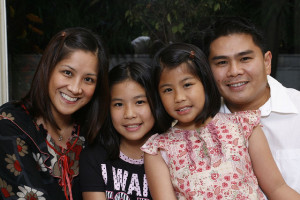9 criteria to select a primary school
Choosing an elementary or primary school, the institution where my daughter will be spending most of her time at a very vulnerable and impressionable age, was not as easy as it seems. I had to move into a different school district in order for the school to be both walking distance from home and to the subway. This allows me to arrive on time at school for drop off and pick-up, and also to arrive at work on time to do all my hours. The school also had to have a good after-school program, which I'm heavily reliant on.
Basic logistics, the quality of the education and the social and cultural environment, were all considerations in my choice of an elementary school for my daughter. She is currently in kindergarten at the local French public school, which is working out well.
Using my experience, I've compiled a list of 9 basic criteria to look for in an elementary school:
- Proximity to home: The parent who is dropping off and picking up the child must be able to get to work on time, work all the required hours and get back to school on time to pick up the child. This is especially important of you are single working parent, since there is no other parent to fall back on if you are late. The school may also offer a school bus service, which can be a great help if your school is not around the corner.
- Public vs. private school: There are many great public elementary schools, and they should absolutely be considered, especially at the primary school level. The private system may offer more interesting academic programs and better facilities, and they can vary widely in price. Perhaps it's less important to have strong academics in elementary school than in high school. Some private elementary schools automatically admit students into the high school, so this can be a great advantage.
- Academic reputation: Having a great teacher is probably the most important factor is a child's education. It's important to visit the school and speak to the staff and teachers, before making a final decision. The reputation of a school should be relatively easy information to obtain from your neighbours and local community. Pick someone's brain!
- Is there an affiliated high school? Some schools offer both elementary and high school. This is an advantage because the student doesn’t have to change schools between elementary and high school. The student also avoids applying to multiple high schools and writing multiple entrance exams, which is stressful.
- After school program: Most parents work from 9 am -5 pm, so it’s important that your child be well cared for at school between the time school ends and the time you pick them up. They should absolutely not left to their own devices during this time. It has been proven that kids that are left alone and bored during this time are often lured into unhealthy, wasteful and even criminal pursuits.
[embed]https://flic.kr/p/pvffpX[/embed]
- Extra-curricular activities: Some public and private schools offer sports, music, theatre, cooking, chess and arts classes after school. This is great both for the parents and child: the parent doesn’t have to drive across town in rush hour to take the child to a class; and the child gets to take an enriching class with their classmates after school.
- Time and space to move: It’s a well-known fact that today’s kids don’t exercise or play enough outside. It’s important that your elementary school offers gym classes as part of the curriculum and at least 2 recesses per day when kids can play outside.
[embed]https://flic.kr/p/7xGh4[/embed]
- Multicultural/ diverse school population: It's a gift to grow up surrounded by different cultures, languages, traditions and religions. My daughter has teachers that are Muslim and wear the veil, others that are Muslim and do not, others are white French Canadians and others are from French Africa. We all respect each other’s traditions and realize that everyone has something unique to bring to the table. Diversity is what makes life interesting and bridging differences through education and friendship is an exercise in love, humility and understanding.
People from multicultural backgrounds are often recent immigrants who have had to make sacrifices and work extremely hard to offer a better life to their children. They tend to have close knit families and communities, cook healthy food from scratch every night and value hard work.
- Healthy and happy families (this does not necessarily mean wealthy families): It’s important that your child make friends and be surrounded by other children that are loved and cared for by their families. There are certain neighbourhoods where there are higher percentages of abused and/or neglected children. It’s good to know your community and your children’s friends, and ensure that they are in stable and loving environments.
They look happy, but a classic nuclear family is not a prerequisite for a loving and stable home!
It’s stressful to attempt making the right decision for our kids: it can never be perfect, there's always a trade-off but we can use the information and do the best we can. Visit the school, ask questions, meet with teachers and read all available info. After all, it’s just elementary school. They will get a primary school education no matter what, and high school is another story!



